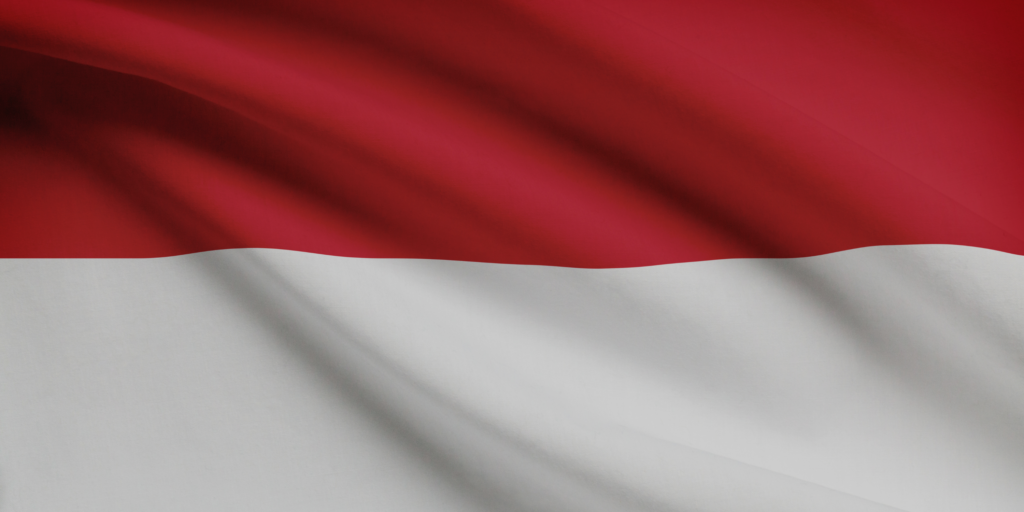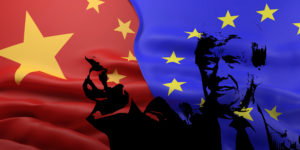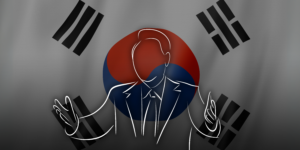Indonesia’s recent strategic manoeuvres reflect a nuanced foreign policy that extends beyond an alignment with China. However, under new geopolitical dynamics, Indonesia might be hard-pressed to maintain its non-aligned policy.
Key takeaways:
-
Despite being touted as Indonesia’s embodiment of a ‘Global South’ orientation and “Free and Active” foreign policy, Jakarta must remain cognizant of the risks associated with being too dependent on Beijing following its BRICS membership.
-
The risks are particularly evident in Indonesia’s evolving stance on the South China Sea, where its position appears increasingly subject to pragmatic trade-offs in favour of economic (and increasingly defence) cooperation with China.
-
Prabowo’s hands-on foreign policy approach presents both opportunities and challenges in managing the US-China rivalry post-Trump’s inauguration. However, following its China gambit, Indonesia needs more than just strategic signalling to Washington.
The BRICS gambit
In January, Indonesia officially joined BRICS as a full member. Beijing warmly congratulated Indonesia on its membership, with analysts positing that the China factor was pivotal in Jakarta’s inclusion in the bloc.
China is Indonesia’s largest economic partner and investor. In 2023, Indonesia became the biggest recipient of Belt and Road Initiative (BRI) investment at almost $7.3 billion. With an eye on the eight per cent annual GDP growth rate target, Prabowo is looking to fortify economic relations with China.
While Beijing does not offer exclusive and favourable treatment to BRICS members and bilateral channels might still be preferred, Indonesia will now also have a chance to access new sources of funding from the New Development Bank (NDB), potentially reducing reliance on Western financial institutions.
During the World Economic Forum in Davos, Foreign Minister Sugiono defended the decision to join the grouping by saying that Indonesia intends to “bridge the differences” between the developed and developing world. The Ministry of Foreign Affairs also added that Indonesia’s intends to be the voice of the ‘Global South’ in global decision-making forums.
At the same time, Indonesia is looking to weave a diverse web of international engagements. Jakarta is in accession discussions with OECD after it became the first Southeast Asian nation to apply to join the organisation last year. Under the previous Jokowi administration, Indonesia also officially requested to join the Comprehensive and Progressive Agreement for Trans-Pacific Partnership (CPTPP), led by Japan, with a goal to increase its export market.
Therefore, the BRICS accessions should not simply be interpreted as Indonesia bandwagoning with China or becoming anti-US, but rather a (risky) move the country is willing to take to gain a seat in an increasingly important global forum, especially as a middle-power and a regional primus inter pares in ASEAN.
It seems that Jakarta is well aware that BRICS membership is often interpreted in the West as Jakarta choosing sides. The Foreign Minister denied that the membership alone constituted a violation of the “Free and Active” foreign policy. Proponents of the move argue that Jakarta’s foreign policy brand does not strictly mean ‘non-alignment’ in the sense of being ‘neutral’ and that the country should navigate its foreign policy guided by its national interests under a multi-alignment policy. How those interests will be safeguarded in context of the ever-closer engagement with China, however, remains under doubt.
Evolving defence ties with China amidst security risk in the South China Sea
Prabowo’s lean towards China has already brought a major diplomatic blunder in a joint statement that the Indonesian president signed with his Chinese counterpart during the visit to Beijing in November 2024, his inaugural foreign trip. The statement particularly referenced “a common understanding” regarding “overlapping claims” in maritime territories, which departed from the previous position by acknowledging Chinese claims. Shortly after, the Indonesian Foreign Ministry released a press statement clarifying that Jakarta still did not recognise “China’s unilateral nine claims in the South China Sea.”
However, the implicit change of the position open to future interpretation might have wide-ranging implications, including by angering Indonesia’s Southeast Asian neighbours who are claimants in the dispute and further tarnishing Jakarta’s leadership role in the region.
Meanwhile, China continues to challenge Indonesia in the maritime domain. Already during the first week of Prabowo’s presidency, Indonesian coast guard and navy ships chased and expelled Chinese vessels three times from encroaching into Jakarta’s exclusive economic zone.
Despite this, the new Indonesian leadership seems to be set to increase cooperation with Beijing on security matters. In April 2024, after becoming President-elect, Prabowo stated that he viewed China as a key defence partner in ensuring regional peace and stability and pledged to strengthen defence cooperation with Beijing. With recent developments, this commitment appears to be gradually taking concrete shape. On January 8, the Indonesian Maritime Security Agency (Bakamla) had a meeting with the China Coast Guard in an effort to enhance maritime cooperation following the joint statement with China. Meanwhile, on January 22, Defence Minister Sjafrie Sjamsoeddin met his Chinese counterpart in Beijing to strengthen contact between the two countries’ militaries and discuss the transfer of military technology.
The Trump Factor
Indonesia’s pragmatic stance toward China represents a continuation of its foreign policy from the Jokowi administration. However, defence and security have increasingly emerged as new areas of cooperation. Meanwhile, increasingly complex geopolitical developments create new challenges for Indonesia.
Prabowo is known for his hands-on approach to foreign policy. Compared to Jokowi, he appears more committed to actively shaping Indonesia’s “Free and Active” foreign policy. His appointment of Sugiono as Minister of Foreign Affairs—someone outside the traditional diplomatic career path and considered his ideological protégé—reflects this approach.
Prabowo’s nationalist, direct style of diplomacy presents an opportunities for both the US and China. His military background suggests a tendency to seek validation from strong leaders—not just Xi and Putin, but also Trump. If securing a place alongside them on the global stage serves his domestic political interests, he may be willing to compromise on key foreign policy positions, such as Indonesia’s traditionally firm stance on the South China Sea.
On November 12, 2024, Prabowo met with Joe Biden shortly after visiting China, in what appeared to be a modest yet symbolic gesture marking the 75th anniversary of US-Indonesia diplomatic relations. Historically, Indonesia has relied on the West for security and defence, but this meeting placed greater emphasis on trade, green energy, and development cooperation. The more striking moment of the visit, however, was Prabowo’s amicable phone call with Donald Trump, which he shared on social media.
Trump’s return to power might pressure countries to take sides—an approach that runs counter to Indonesia’s longstanding non-alignment policy. Trump has already threatened BRICS members with 100% tariffs should they move to replace the US dollar as reserve currency. With Indonesia now a BRICS member, Jakarta may find itself increasingly ensnared in this geopolitical tangle, requiring a strategic reassessment of its relationships with global powers that considers not just economic pragmatism but also security risks.
Ultimately, the personal dynamics between Prabowo and Trump could shape the future of US-Indonesia relations—for better or worse. Whether their rapport strengthens cooperation or complicates Jakarta’s balancing act remains to be seen. The Trump administration’s use of tariffs will be hard to swallow for Indonesia. The real challenge for Prabowo lies in persuading Western partners—not just Trump—that Indonesia’s pragmatic multi-alignment remains intact. However, achieving this while maintaining close ties with Beijing could prove to be a Herculean task.







